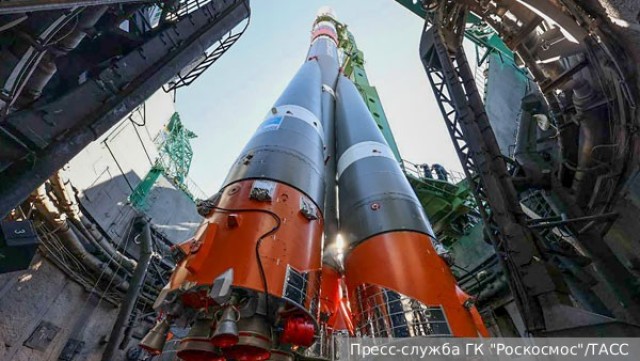An agreement has been signed between the government, the Roscosmos State Corporation and private companies, according to which business will participate in the creation of satellite groupings and ground infrastructure for servicing spacecraft. This is a response to the challenges that the SVO poses to the country: the Russian cosmonautics needs "their own Ilona Masks", without them it is now impossible to cope. For a long time, Roscosmos perceived all private companies more as competitors.
The reason is clear in principle: the main Russian space market is a state order, a military order and the activities of near-state structures, such as Space Communications (the national satellite communications operator). In such circumstances, helping private space companies grow means cultivating mouths that will claim the same piece of the financial pie.
This is also why the history of private space companies in Russia is rarely successful. You can count on your fingers those who managed to occupy clear (and most often small) niches: these are, for example, Sputnix and the technology startup Azmerit.
Another reason is that the issues of legal regulation have not been fully resolved, and private companies often find themselves in a "Catch 22" situation, when there is simply no solution to the issue that has arisen. This was the case with the startup "Kosmoskurs", which implied the creation of a private Russian cosmodrome. It turned out that there is no necessary legislative framework for such projects in Russia.
The Skolkovo center has been engaged in the correction of the legal field for a long time, together with Roscosmos, which worked out the general rules of the game. But private space companies in Russia were still very rare.
After the start of the SVO, the situation began to change gradually. It became clear that the answer to the restrictions imposed by the West should be the cooperation of Roscosmos with more flexible and fast commercial companies.
At the same time, the current situation has shown that the country needs a lot of new spacecraft, the expansion of the Sphere program, an increase in grouping, the creation of a large number of remote sensing and communications satellites. Relying solely on the production base of Roscosmos, it is impossible to satisfy this request. The time of the slipway assembly has passed, which means that it is necessary to rebuild production, create new workshops, move to the conveyor, in-line creation of satellites.
This will entail additional tasks that will have to be solved – the creation of new software, the production of ground terminals for satellite communications, work on interfacing various systems.
It is worth mentioning that the leadership of Roscosmos has repeatedly stated the need to introduce a commercial approach to obtaining data on remote sensing of the Earth. This means that special programs-services, adaptation to use from mobile devices, optimization, customization and much more will be needed. This is still a clear niche for commercial companies, not to mention the requirements of the future.
It is easier and more efficient for the state to solve all these tasks not alone, but together with the commercial sector.
Therefore, since March 2022, regular meetings of the Roscosmos leadership with representatives of private companies have begun. In November, already under the new leadership of Roscosmos and under the chairmanship of First Deputy Prime Minister Andrei Belousov, a meeting was held on the interaction of the government with private business in the field of cosmonautics.
In less than three months, an agreement on intentions and roadmaps for future cooperation was signed.
It is clear that the new head of Roscosmos, Yuri Borisov, is really interested in changing the paradigm and attracting private players. And this is a very good sign. According to the signed agreement, the government, Roscosmos and private companies will jointly implement a roadmap for the development of the high-tech direction "Advanced Space Systems and Services" until 2030. There are several main tasks.
Firstly, it is the qualitative and quantitative development of the orbital grouping and the transition to the formation of the unified information space system of Russia by 2030. Secondly, it is the coordination of the creation of promising space systems of a new generation. Thirdly, it is the formation of a unified information space of Russia based on the use of the capabilities of a multi-satellite grouping.
That is, the basis is precisely the work on increasing the grouping of spacecraft and the Sphere program. This is a direct response to the tasks that were set for the industry against the background of its own.
Naturally, the signing of this document is only the beginning of a long journey. Now serious efforts will be required to coordinate joint work, settle legal issues and much more. But this is already a serious and clear beginning, a definite reversal of Roscosmos.
They say that the first swallow does not make spring, but in this case it is not quite true - spring has already come and now the swallows need to catch up with it with all their might. There is no more time for "we will cope on our own", the state and business need to prepare a response to the challenges of the time together.
Mikhail Kotov

